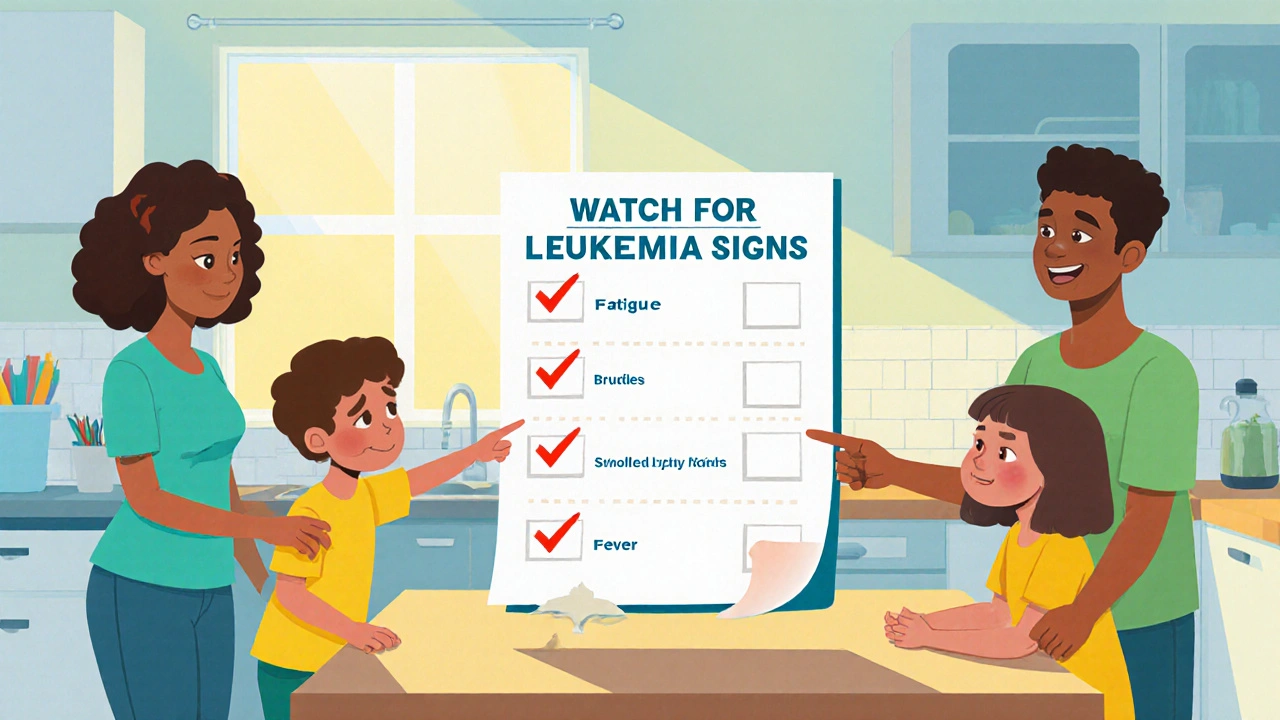
Early Detection in Leukemia: Critical Signs You Should Know
Learn why early detection of leukemia matters, recognize key warning signs, understand diagnostic steps, and get practical tips to act fast and improve outcomes.
When your body starts showing strange, persistent signs—like tiredness that won’t quit, unexplained bruises, or infections that won’t go away—it might not be just stress or a bad season. It could be leukemia, a type of blood cancer that starts in the bone marrow and floods the bloodstream with abnormal white blood cells. Also known as blood cancer, it doesn’t always come with a loud warning. Many people ignore the early signs because they seem too ordinary: a headache, a fever, a feeling of being worn out. But when these stick around for weeks without a clear cause, it’s time to pay attention.
Leukemia doesn’t just affect one part of your body—it messes with your whole system. Your bone marrow, which normally makes healthy red blood cells, platelets, and white blood cells, gets taken over by faulty cells. That’s why you start seeing symptoms like fatigue, extreme tiredness that doesn’t improve with rest, because your body isn’t getting enough oxygen-carrying red blood cells. You might notice unexplained bruising, tiny red spots under the skin or large bruises from minor bumps—that’s your platelet count dropping. And if you’re catching every cold, flu, or infection that goes around, it’s because your immune system is filled with useless, abnormal white cells that can’t fight anything.
Other red flags include night sweats that soak your sheets, fever without a clear source, bone pain (especially in the legs or back), swollen lymph nodes in your neck or armpits, and losing weight without trying. These aren’t symptoms you shrug off after a few days. If you’ve had three or more of these for more than two weeks, and no doctor has found a simple explanation, you need to push for blood tests. A simple complete blood count (CBC) can reveal abnormal cell counts or blasts—early warning signs doctors look for. Early detection doesn’t always mean a cure, but it gives you more options, better outcomes, and time to act.
The posts below cover real cases, misunderstood signs, and how leukemia symptoms overlap with other common conditions—so you don’t mistake a serious problem for a minor one. You’ll find guides on what tests actually matter, how symptoms differ between children and adults, and what to ask your doctor when something feels off. No fluff. Just what you need to recognize the signs before it’s too late.

Learn why early detection of leukemia matters, recognize key warning signs, understand diagnostic steps, and get practical tips to act fast and improve outcomes.